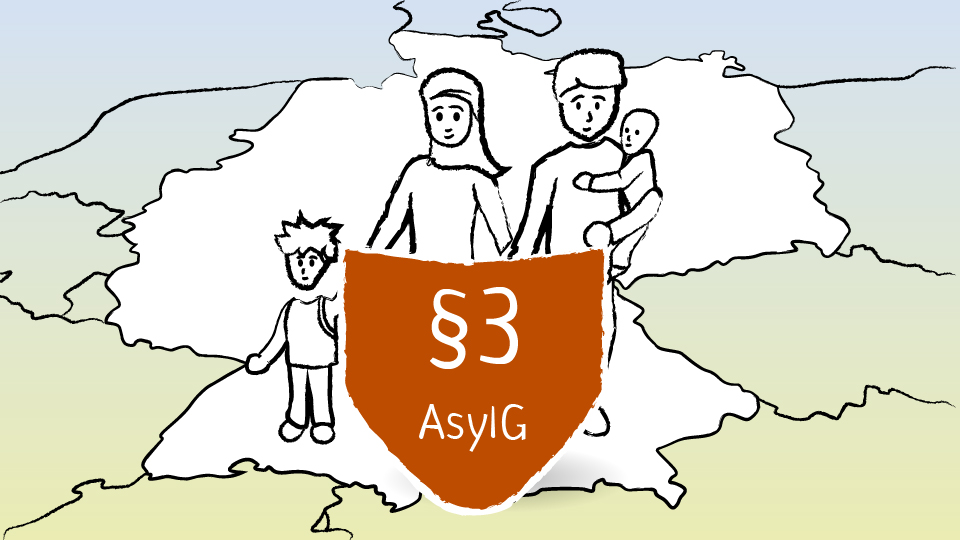Refugee protection ,
Refugee protection is more extensive than entitlement to asylum, and also applies to persecution by non-state players. On the basis of the Geneva Refugee Convention, people are regarded as refugees who are outside their country of origin and nationality, or as stateless individuals are outside of their country of habitual residence and are unable or - because of a well-founded fear of being persecuted by state or non-state players - are unwilling to avail themselves of the protection of their country of origin for reasons of
- race (The term "race" is used in accordance with the wording of the Geneva Refugee Convention.),
- nationality,
- political opinion,
- religion, or
- membership of a particular social group (A group may also be regarded as a specific social group on the basis of the joint characteristic of sexual orientation.).
Background information

Substantive law on refugees makes it possible to receive persons seeking protection on humanitarian grounds, and includes both the standards of protection which are to be examined by the Federal Office within asylum proceedings and a further field of other humanitarian rights to remain which fall within the competence of the Länder, specifically of the immigration authorities and commissions on hardship cases.
Examples of acts which may be regarded as persecution include:
- use of physical or psychological violence, including sexual coercion,
- legal, administrative, police and/or judicial measures which as such are discriminatory, or are applied in a discriminatory manner,
- disproportionate or discriminatory prosecution or punishment,
- refusal to provide judicial legal protection, leading to disproportionate or discriminatory punishment,
- acts linked to sexuality or which target children.
Reasons for not qualifying for protection

An entitlement to protection with regard to the three forms of protection mentioned above – entitlement to asylum, refugee protection and subsidiary protection – cannot be considered if reasons for not qualifying apply. This may be the case if:
- an individual has committed a war crime, a crime against peace or against humaity,
- a serious (non-political) criminal offence
- has breached the goals and principles of the United Nations,
- is to be regarded as a risk to the security of the Federal Republic of Germany, or
- constitutes a danger to the public because he/she has been finally sentenced to at least three years' imprisonment (one year under certain preconditions) for a felony (Verbrechen) or a particularly serious misdemeanour (Vergehen).
The legal basis and consequences

- residence permit for three years
- A settlement permit may be issued after five years if the requisite preconditions are met. This period is reduced to three years if the applicant has a knowledge of German (level C1 of the Common European Framework of Reference for Languages) and is largely able to make a secure living.
- unrestricted access to the labour market – gainful employment permitted
- entitled to privileged family reunification
Section 3 subsection (1) of the Asylum Act

